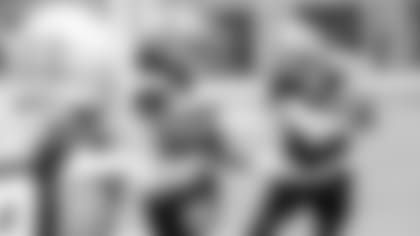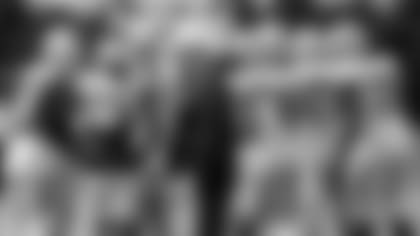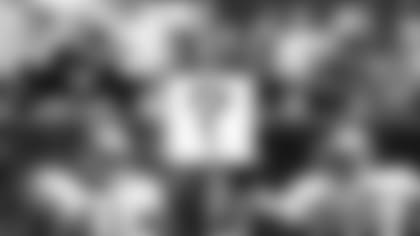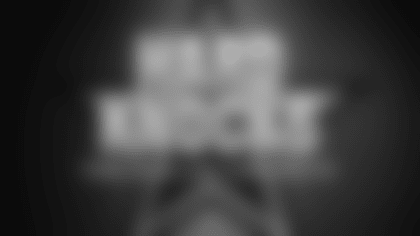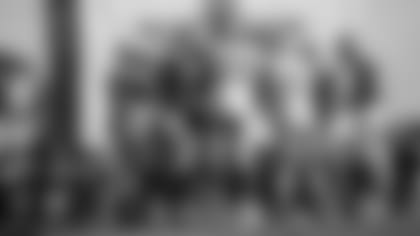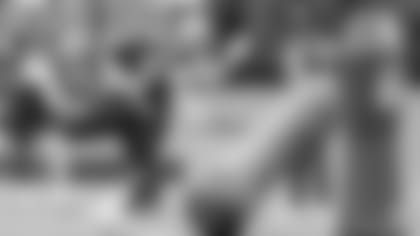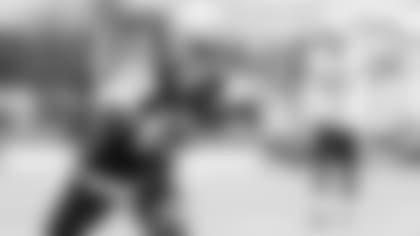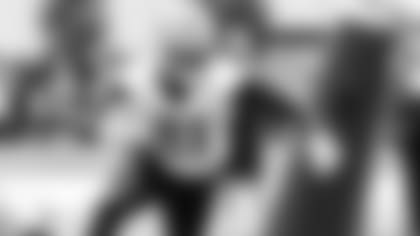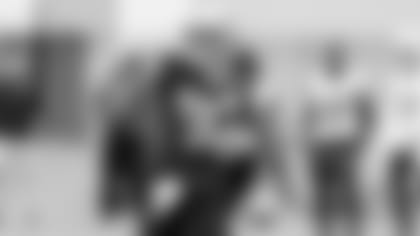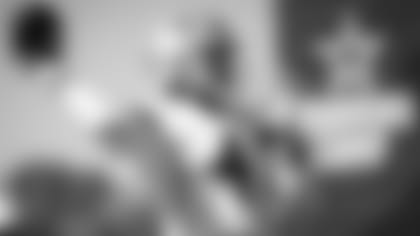FRISCO, Texas – Former Cowboys cornerback and Mick Shots podcast teammate Everson Walls is best known for setting the NFL rookie single-season interception record at 11 in 1981.
That also is the Cowboys' franchise single-season record.
On top of that, no player since 1981 has intercepted as many as 11 passes in a single season over the past 40, though several have come close with 10, including Miami's Xavier Howard this year in leading the league.
It's also well-known Walls' 44 career interceptions in nine seasons with the Cowboys is second in franchise history to only Mel Renfro's 52, though Walls finished his 14-year NFL career with 57 interceptions, tied for 13th most in league history. (Walls had four more picks in 10 playoff games.)
And then, of course, there was Walls flying underneath San Francisco's leaping Dwight Clark, whose last-minute 1981 NFC Championship Game-winning touchdown over the Cowboys famously became known as "The Catch."
But, since this is Super Bowl LV week, the game being played for the fourth time in Tampa, Fla., let's go back 30 years in time to Super Bowl XXV, Jan. 27, 1991, the old Tampa Stadium known as the Sombrero where the New York Giants defeated the Buffalo Bills, 20-19.
The game generally is best known for Bills kicker Scott Norwood's wide-right 47-yard field-goal attempt on a second-and-10 from the Giants' 29 with 0:08 remaining to seal the Giants' second Super Bowl victory in five years under head coach Bill Parcells.
Afterward, Giants defensive coordinator Bill Belichick said, "We wouldn't have won if he didn't make that tackle."
The "he" refers to Everson Walls.
That's right, the Giants starting cornerback who had been moved to safety in their pass-defense alignment designed to stop Buffalo's "K-Gun" offense led by quarterback Jim Kelly that had scored a league-high 428 points during their 13-3 regular season and another 44 and 51 points in the Bills' two playoff victories.
"They were ballin'," Walls said of that Bills offense on Tuesday's Mick Shots podcast.
If you remember, Cowboys head coach Jimmy Johnson became irritated with Walls after a 24-20 loss to the Cardinals during that 1-15 season of 1989, yelling at him on the field after the game to get into the locker room while fraternizing with "the enemy," Phoenix wide receiver Roy Green. Walls, who passed through Plan B free agency unsigned in the spring of 1990, was then released but almost immediately signed by Parcells and the Giants.
Prior to New York and Walls playing the Cowboys for the first time in that 1990 season, he was quoted in the _New York Times_ saying, "I'm just trying to prove myself to this team. Bill Parcells is such a hard coach to please. You know how coaches are. Too much is not enough."
Well, after those nine years with the Cowboys, the final four losing seasons, the hometown kid from Richardson, Texas, who used to ride his bicycle to the Cowboys' nearby facility to catch a glimpse of practice by hoisting himself up on a fence, finds himself in Super Bowl XXV.
The Giants were leading 20-19. With 2:19 remaining, Buffalo had the ball first-and-10 at its own 10-yard line. The Bills were becoming known as the comeback kids. Kelly had moved his team to a third-and-inches at the 19 with 1:48 remaining. Running back Thurman Thomas would end up rushing for 135 yards in that game and gaining a combined 190.
Defensive coordinator Bill Belichick basically had the Giants defense playing nickel and dime all game, hoping to prevent big plays from the Buffalo no-huddle offense, meaning Walls spent almost the entire game playing safety, and as he pointed out, calling the defensive plays.
Thomas got the handoff going right, but cut back to his left. No Giants in the vicinity. At top speed, Thomas easily had the first down. Crossed the 30. Crossed the 35. And here came Walls from his safety position.
"So during that drive, the play, the handoff was easy to see," Walls said. "We only had one defensive lineman in the game, so when the handoff was made the hole was easy to see. We only had three down players and only one was a D-Lineman.
"So he's coming right at me, I saw it right away. … He had already crossed the line of scrimmage. I was coming up, and according to Thurman Thomas – I talked to him like 10 years after this play – he said he never saw me. … He didn't expect me to be there because he knew the defense we would be in. It's a cover 2. He's thinking once I get past those linebackers, my eyes are going to where I can score a touchdown."
When watching the replay of the game, Belichick was right. If Walls does not make the tackle, chances are Thomas is going all the way, and certainly closer than the 29-yard line the Bills ended up at for Norwood's field-goal attempt with eight seconds remaining.
"He covered that ground quickly," Walls recalled. "Next thing I know, he's on me, and I make a pretty unspectacular tackle. Parcells was asked what would happened if Everson Walls missed that play, 'Do you think (safety) Myron Guyton would have caught him?'
"And he said, 'Yes, maybe in the parking lot.'"
And Belichick would go even further after the game, saying, "That was the play of the game."
Sure was, something Walls should be known for.
But unfortunately for those researching the official NFL play-by-play of that Super Bowl, when you scroll down to that play, the one where Thomas is credited with a 22-yard gain to the Bills' 41 with 1:20 left in the game, well, the tackle was credited to a Giants player who was nowhere near the tackle, No. 58 Carl Banks.
Instead of No. 28, Everson Walls.
Oops, but now you know, and know better about Everson Walls.




